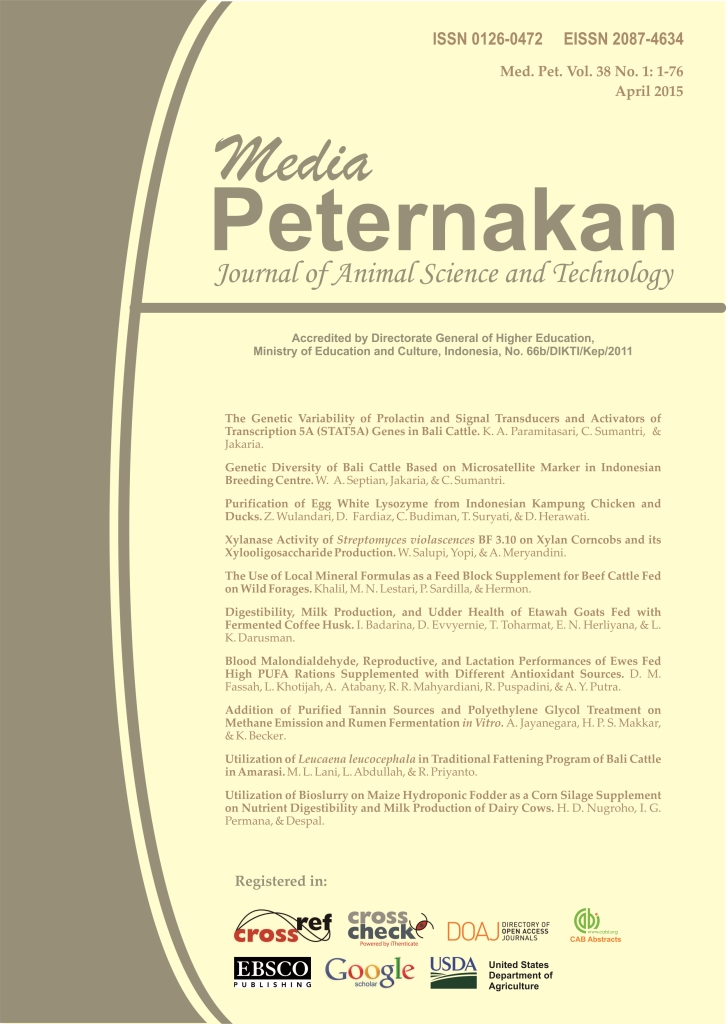Digestibility, Milk Production, and Udder Health of Etawah Goats Fed with Fermented Coffee Husk
Abstract
This study was carried out to assess the utilization of coffee husk fermented by Pleurotus ostreatus as feed supplement by measuring the digestibility, milk production and udder health of Etawah goats suffered from subclinical mastitis (+1). There were three experimental diets consisted of T0 (control diet/basal diet without fermented coffee husk), T1 (basal diet with 6% fermented coffee husk) and T2 (basal diet with 6% fermented coffee husk soaked in crude palm oil for an hour before using). Basal diet consisted of napier grass (60%) and concentrate (40%). The results showed that supplementation of lactating Etawah does with fermented coffee husk did not affect the palatability of the diets, but increased the protein and crude fiber consumption (P<0.05). There was no significant effect on nutrient digestibility and milk production while milk composition (protein, fat, total solid) increased in supplemented groups (P<0.05). The persistency of milk production and the somatic cells count were not different. There was an improvement of somatic cells count on supplemented groups. In conclusion, fermented coffee husk could be used as feed supplement without any negative effects on digestibility and milk production. The positive effects to udder health could be expected from including fermented coffee husk in diets.
Key words: coffee husk, Etawah goat, fermented, performance, supplement


